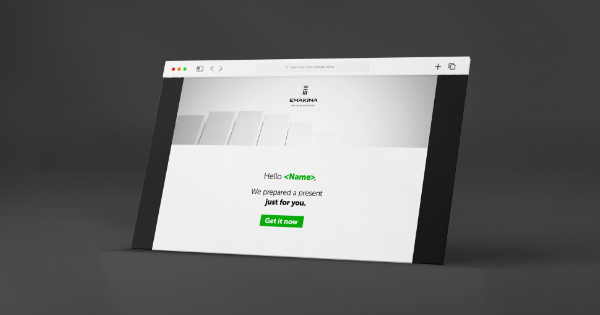User Experience = Agencies’ New Core Business

The earth has revolved once more around the sun: we are in 2016 and the Digital Transformation is in full swing. Faced with a world of digital native start-ups, companies with physical operations used to appeal to specialist agencies. Now, though, they are increasingly running their own digital operations. The agencies need to rethink their role… So what is their future made of?
The Digital Transformation affects all sectors of the economy. Whole sections of industry have been upended and new businesses – sometimes pejoratively called ‘start ups’ – are challenging old-fashioned bricks and mortar. The new firms have real advantages over more traditional enterprises: raised in a modern corporate culture based on the sharing economy, they are more flexible and more likely to challenge their business models.
How powerful are traditional businesses compared with digital natives?
Newcomers competing with traditional companies have one great asset: they are experts in perfecting the user experience. If companies like Airbnb can take on the big hotel groups, this isn’t necessarily due to the quality of accommodation they offer or extent of services available from individuals who offer rooms to paying guests.
The same is true of Uber, AmazonFresh and iTunes. They do not just owe their success to the quality of products or services on offer or their discounted rates. It is also due to the quality of the customer’s user experience, with user-friendly ergonomics welcoming them in whenever they decide to use a particular service.
Two-click commands wherever you are, package tracking, driver selection, automatic payment, permanent availability… There are plenty of reasons to argue the best interface beats the best product.

From now on, user experience makes the difference
Who wants to make a call to order a taxi, even though that driver might be more experienced and know better routes than your part-time chauffeur? Who doesn’t prefer to get groceries delivered via a tablet (sometimes integrated with the connected fridge) rather than having to go to the drab website of a hypermarket chain that might actually be cheaper – or, God forbid, visit an actual store in real life?
Who wants to go to a Fnac music store to buy an album when, in a few clicks, you can slot the two songs that really interest you into your online library, accessible anywhere, any time? More and more people, and not just the young ones, want to enjoy the benefits of the Digital Transformation.
More than any other industry, the banking sector has grasped the importance of this challenge, and the big banks set their wits against one another to offer their customers the best possible user experience. Transaction management, budgeting, standing orders, share portfolios… First the ‘virtual banks’ without IRL agencies, then other larger retailers, and now all major banking groups invest heavily in building web and mobile applications to keep up with the competition.

Partners of your digital transformation
All sectors face the same fundamental need to question their user experience for both customers and employees. Hotel chains must beat Airbnb on its own turf, food delivery firms need to prepare for the arrival of AmazonFresh on their beat, and airlines have to match the service of Kayak.com.
Phillips, for example, pulled it off. It reacted quickly to competition from Wi-Fi enabled bulb maker LIFX with its own range of connected bulbs called Hue. But not every traditional company has the technological DNA necessary for this merciless war with new digital native firms, determined to enjoy an advantage they know is temporary.
User experience or death
What is the role of agencies as modes of consumption rapidly shift? Actually, they have precisely the skills to design and deliver user experiences that will help ‘stores with doors’ fight off the newcomers.
So watchmakers who want a smart watch interface without calling on Silicon Valley will go to the agencies who can successfully set them on digital time…





